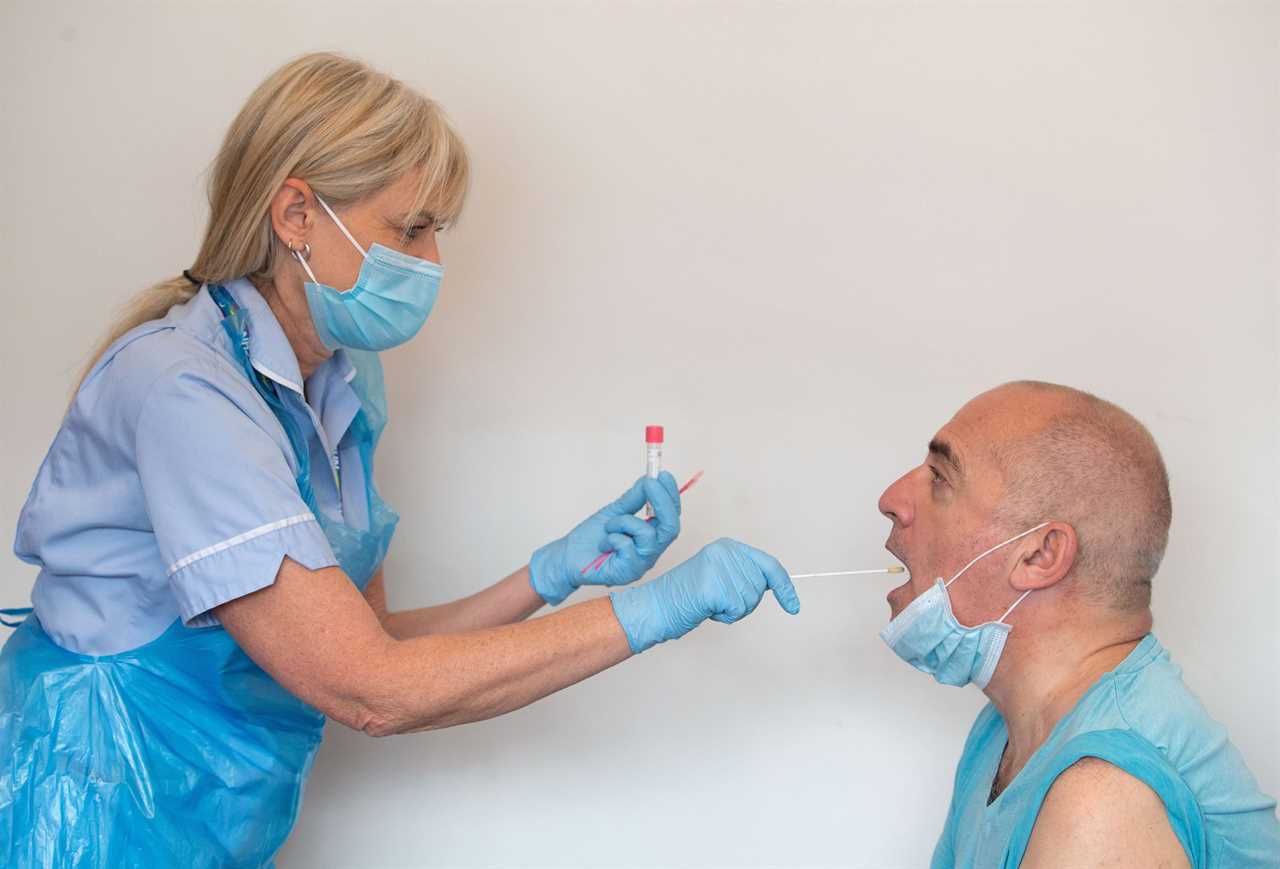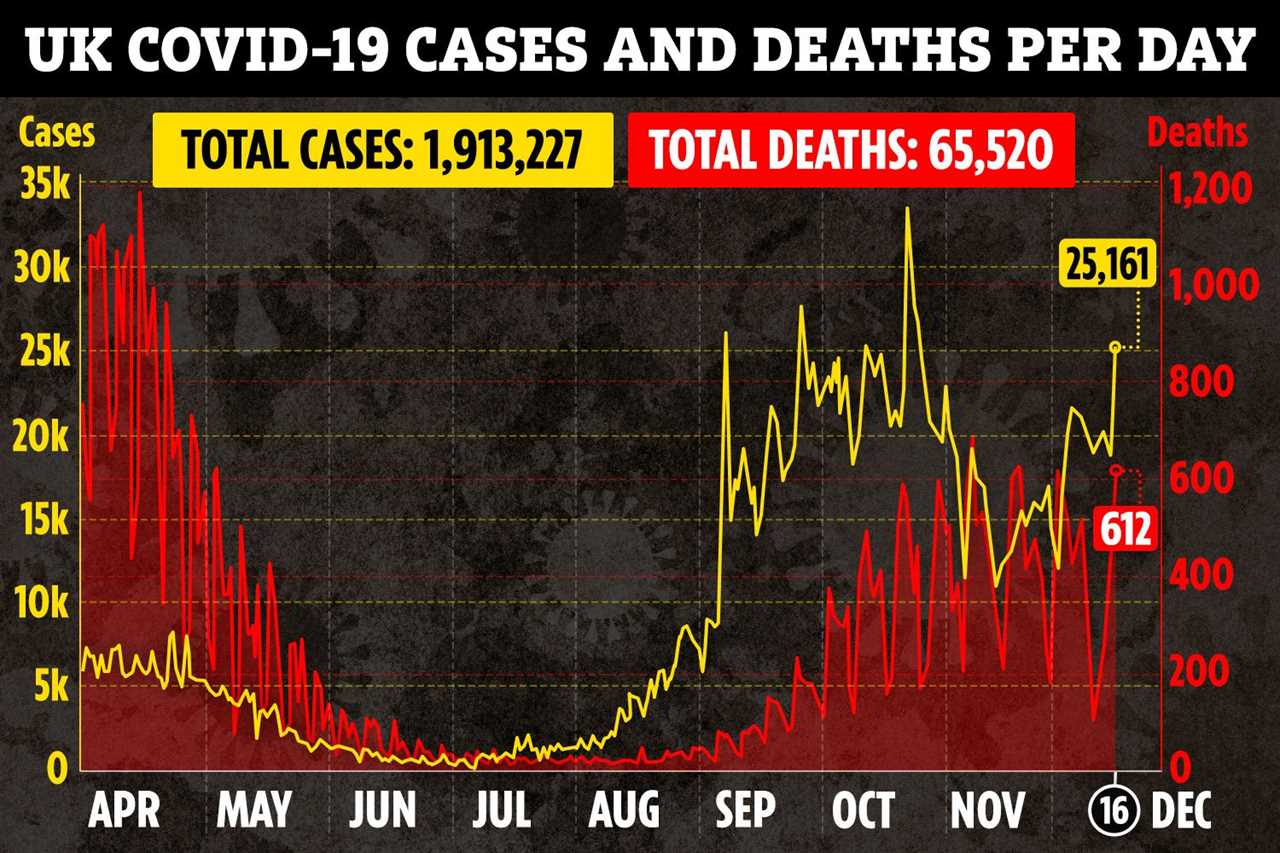ONE in five people testing positive for Covid are left with devastating long-term symptoms, official figures reveal.
A fifth still report issues after five weeks and one in ten after 12 weeks – more than twice previous estimates.

Around 186,000 people in England were living with problems lasting this long in the week starting November 22.
Some 11.5 per cent were still suffering fatigue after five weeks, 11.4 a cough and 10.1 per cent a headache.
A further 8.2 per cent still had no sense of taste and 7.9 per cent a loss of smell, the Office for National Statistics found.
It is the first time the official body has released data on people suffering “long Covid”.
The numbers, taken from the ONS national infection survey, do not include people in hospital, care homes or prisons.
COVID COMPLICATIONS
The ONS is also investigating Covid complications by looking at GP records, hospital data, deaths and testing figures.
Results suggest hospital patients with the bug have higher rates of diabetes, cardiovascular, kidney and liver disease.
The risk of a heart attack, stroke or heart failure was nearly 12 times higher in inpatients with coronavirus than without.
Dr David Strain, from the University of Exeter Medical School, said: “These preliminary data are very concerning.”
He added: “These confirm what we have seen working on the Covid wards, that this virus is more than a simple respiratory infection, but is a multi-system disease.
“In some ways, however, people affected by these complications are less unfortunate, as there is a pre-existing clear knowledge base and there are effective treatment strategies for these conditions.
“Of greater concern, are those with the non-specific fatigue, myalgia (muscle pains) and fevers that we have no real understanding of the causes, the risk factors or how to treat it.” Dr Strain said long Covid was hitting younger people and women most.
He continued: “The long-term consequences for these individuals, and for the population as a whole, could be potentially devastating in terms of physical manifestations for the individuals but also the economic impact of these individuals being unable to work.”


Dr Amitava Banerjee, from University College London, said long-Covid is already hitting the quality of life of previously healthy people.
He added: “Knowing the prevalence of long COVID and its risk factors is essential for planning how to prevent and treat it.
“Although post-viral symptoms are common, whether after flu or other coronaviruses, the scale of this pandemic and the potential number of infected people with long COVID is unprecedented, and poses yet another COVID-19-related public health challenge.
“The observed association between multi-organ impairment and being hospitalised with COVID-19 is a cause for concern and definitely warrants more investigation.
“Long COVID provides yet more solid evidence to support public health strategies that suppress the infection rate.” Sarah MacFadyen, from Asthma UK and the British Lung Foundation, said: “These welcome insights help us to build a better picture of the impact of long Covid.
“What we need to see now is further research into this so we can better support people.
“We’ve heard from many people enduring a long recovery from Covid and some are in a frustrating endless loop of symptoms – feeling better one day and worse the next.
“Long Covid clinics are due to open in England.
“These need to be rolled out urgently and across the UK so that people can access help and support wherever they live.”






